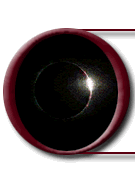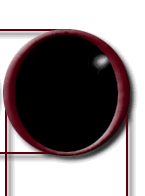Note -- you have reached the original astrophotographs.com website. Thanks very much for visiting. Logo contact information has been updated (i.e. we moved to Taos, NM) as below:
Willis Greiner
12 Rabbit Valley Road / P.O. Box 1515
El Prado, NM 87529
303-903-8996 or 575-758-3670
taosastronomer@gmail.com
You may also want to visit Willis' new astronomy site at: taosastronomer.com/
"Rambling
Through the Night Sky"
Happens every morning. Still dark -- very dark -- after all,
I'm miles from nowhere, lying around in the dust and sand, on
the plateau above Barrier Canyon. I'm cold and awake, and ready
for my early morning trip to the facilities. Luckily, they're
only two or three steps from my sleeping bag -- maybe a new
plantling will be the benefactor of my modest offering.
| Not
all that long ago, a majority of the Earth's human population
slept under the stars for at least part of the year. Most
of the inhabitants' spiritual acts had some connection
with the sky, and humans were dutifully in awe of the
heavens . . . Astronomy and Cosmology were the first sciences,
and continue to challenge the human psyche to this day.
Within their disciplines we may find a reason for our
existence. |
As I peek from the warm confines of my bag, I spot the oddest
thing. Wiping dew from my glasses, I rub my tired eyes, blink
and still see the same phenomena. It's a bright, beautiful,
almost phosphorescent band of light -- parallel to the horizon
and at 90 degrees to the Milky Way; which is at full splendor.
The strange band is as bright as the Milky Way, even on this
very transparent morning. From the constellations' locations,
I decide it must be about 3 A.M. (I don't have a watch.) I'm
proud to be able to estimate the local time from the constellations'
locations; in fact, I quite like sleeping under the stars. I
should do it more often, but local custom suggests that sleeping
outside of a modern dwelling is behavior unacceptable for a
grown man. Nevertheless, I have slept out hundreds of times.
I still vividly remember the darkest skies. Craters of the Moon
and Paradise Ranger Station in Idaho, Guadeloupe National Park
in New Mexico and right here in Canyonlands; all of these spots
have exhibited memorable nights.
Not all that long ago, a majority of the Earth's human population
slept under the stars for at least part of the year. Most of
the inhabitants' spiritual acts had some connection with the
sky, and humans were dutifully in awe of the heavens . . . Astronomy
and Cosmology were the first sciences and continue to challenge
the human psyche to this day. Within their disciplines we may
find a reason for our existence.
 |
| (Click
on the image link above to move to Willis Greiner's and
Cheryl Price's web site of hand painted black and white
photography -- photofantasia.com.) |
Now, as we move along with the new technology, we have lost
much of our dark sky to artificial light and air pollution.
I wonder what else we may have involuntarily surrendered. The
sighting of a comet or meteor, the experience of an eclipse,
even a simple view of the Milky Way; all of these things are
now "events," not normal, natural everyday occurrences. Quite
a large percentage of the people alive today have not even really
seen a dark night sky. Huge urban populations will go through
their entire lives never even glimpsing the nighttime rendering
of our own home galaxy.
"So what," one might ask. Maybe, just maybe, such a loss can
be quantified, can be measured in our collective confused, depressive,
psycho-mumbo egomaniacal behavior that characterizes so many
modern events. Maybe some of the source of what it is to be
human has been forgotten in all of the technology, man-made
light and air pollution.
As I peek out from my bag, it occurs to me finally that this
pearlescent ray is simply the Zodiacal Light, a phenomena described
in any freshman Astronomy text. I had never seen it until today.
|






















